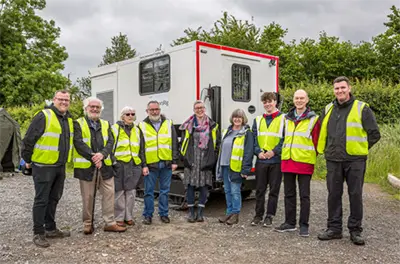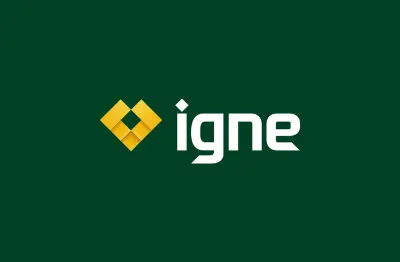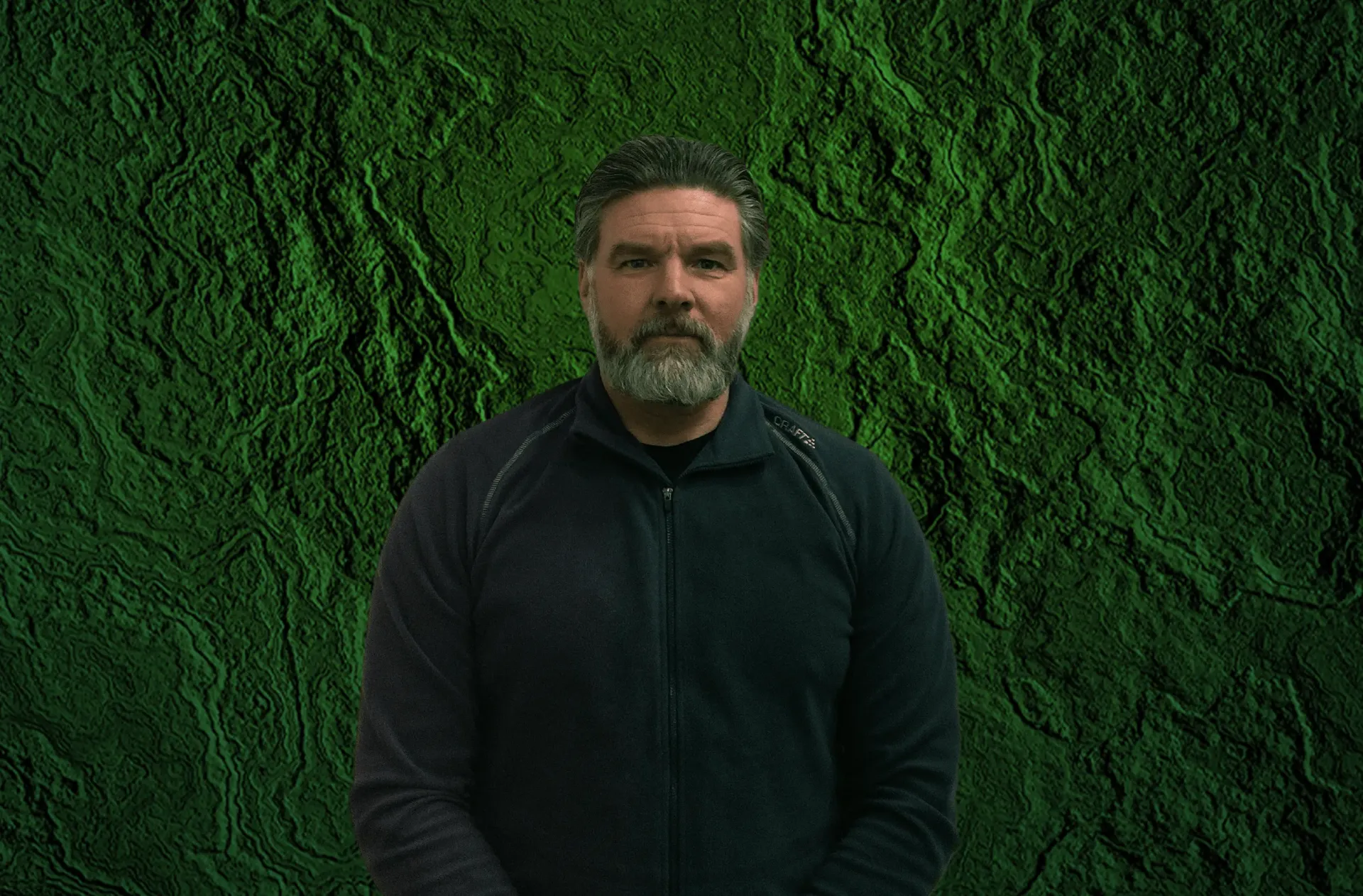Staff Spotlight with Nigel Barton
Meet Nigel Barton, Igne's UXO Technical Field Manager who is beloved by firefighters and who once trained the FBI and Secret Service.
Staff Spotlight is the regular Igne feature that shines a light on members of the team that work for you.
This week, Marketing Executive Mary Pipikakis caught up with Nigel Barton, Technical Field Manager. Together they discussed Nigel’s very varied employment background – including his work training the Secret Service and FBI in the United States - and his passion for continual professional development.
How long have you been at Igne?
Well, I started as a subcontracted explosive ordnance disposal (EOD) engineer in October 2015. Then I became full time as a Senior Site Manager in January 2016 before it morphed into my current role of Technical Field Manager 2 years ago.
What did you do before working at Igne?
I did quite a lot! I was in the Royal Engineers in the army for 25 years, I left in 2010. I finished my army career as a Warrant Officer Instructor at the Defence EOD and Search School based in Rochester.
While in the Royal Engineers I was commando trained and was an army diving supervisor. I also got my commercial health and safety diving certificate.
When I left the army, I initially worked in the commercial diving industry. After this I went to work for SAAB Training Systems for 4 years where I was teaching and evaluating counter improvised explosive device (C-IED) Search.
This role was based in Afghanistan, but I also went to Australia, Jordan, Cyprus and Germany. I ended up working for the British military as well as teaching the Afghanistan National Police and army and American forces too.
This opened up more opportunities to me. In 2015 I worked in America teaching the United States Secret Service, the FBI, and also departments from Homeland Security. I was teaching them Counter IED Search.
I also taught in Europe, working with the European Defence Agency in Vienna.
It was around this time I also began subcontracting for Igne. It worked well as they always had work for me but could offer me flexibility - meaning I could still travel and teach.
But then I got offered something more permanent…
So, what made you accept the full-time job with Igne?
I thoroughly enjoyed the travelling and teaching, but I wanted something more permanent and set in stone, I wanted that level of job security. You go through peaks and troughs with teaching and contracting and it can get tiresome.
Also, I liked the fact that Igne was a very well respected and reputable company. They were always busy!
Due to my diving qualifications I have supported Igne’s marine team with project management in the past. But I went to the land business unit when I became full time because the marine side doesn’t always need divers.
As odd as that sounds, a lot of the deeper marine unexploded ordnance stuff has to be done by remotely operated vehicles. And generally, a lot of the marine surveys use side scanning and riverbed scanning. This means the diving side is a very small component. But I retain the skills to go in and audit subcontractors as needed.
So, on the land side of things I moved into the construction space and I was willing to do anything and learn all the different aspects of the job to make myself more useful to Igne. I wanted to adapt my skills, so I wouldn’t just be delivering explosive ordnance disposal services and watch and briefs.
I was happy to learn all about non-intrusive surveys and also worked as a driller number 2 to learn and understand our drilling techniques for example. I’ve always been happy to do anything to expand my skill set.
What is your favourite part of your job?
The diversity. Every day is different and that is what I enjoy, I don’t like the mundane. I’m in and out of the office a lot.
A favourite part of the job is when I have a client who doesn’t know much about unexploded ordnance (UXO) risk mitigation or why they need our services.
So, I always host a kick-off meeting at the start of any project where I work with the client to make sure that by the end of this session they understand the UXO risk, what we’re going to do to take the risk away and help them - and so they understand what exactly we’re looking for.
I also run through any potential issues we may encounter with the methodology. For example, what will happen if ground conditions are not as expected or what is the process is if we do find anything suspicious.
Part of my job is ensuring the client is happy with the process before we start. I always finish these sessions off by asking for questions and use any questions to add to my future approach.
I want clients to understand and be comfortable with what they’re paying for, why, and the value it will bring them.
The main thing from a client's point of view is understanding why this is going to take up their time and money. I enjoy ensuring they understand our service, how we’re going to assist them, and the timescales involved in the work.
It’s also important to ensure they understand the cost involved so if something does need to change, the client knows why and what the financial implication is for them. We mitigate threats and unpleasant surprises; we keep them on time and budget…
So, I guess my favourite things are:
- the diversity of the job
- building relationships with clients
- and increasing people’s awareness of UXO and its threat
Explaining everything initially can take up a client’s valuable time, but this understanding is essential and from feedback, I know client’s value it. They also then know who to call for future projects. I must say, getting repeat business is always a good feeling.
What is the most interesting thing you’ve learned working at Igne?
There isn’t just one single thing because all the methodologies we use are site specific. The longer I’ve worked for the company the more challenging the jobs that have landed on my desk…so even though at the time you might be like ‘oh this is a nightmare’, when you get to the end you realise how much you’ve learned and what you’ve achieved.
It means we keep building this unrivalled arsenal of amazing experience for future work. You learn to deal with such diverse and difficult complexities. It means no matter problems a future client might present us with, we’ll be able to support them.
What is the most interesting thing you’ve done at Igne then?
All of it! Especially the constant learning and continual professional development.
The job just never gets boring, there is always something new to learn. Whether it’s determining how to work around challenging ground conditions, getting clients to see the value in what we do, or just understanding signs and signals for challenges we might encounter and devising strategies to overcome them.
We justify our processes with our knowledge and our experience. As I’ve said, the most important part in my opinion is explaining things to clients BEFORE we start work. I even illustrate the process, so when I go to a meeting, I explain how we analyse the data, how the system works, how the probes work – everything.
I enjoy using my knowledge to build trust. This trust then makes the job easier. If the client trusts us and understands what we’re doing, they will understand why we may need to change methodologies under certain circumstances. It won’t come as a shock.
My goal is that if something has to change and the Quantity Surveyor asks why, the Project Manager on site is confident in answering those questions.
I think that’s what I like most, I like increasing the understanding of the work Igne does, why it is essential, and the benefits of it.
Other articles of interest

Cone penetration testing with Connor’s Rig
One of the reasons behind the UK land team’s decision to invest in Connor's Rig from Geomil earlier this year was to advance Igne's (formerly SafeLane) cone penetration testing (CPT) capability...

Igne launch
Igne launch sees transformative merger of six leading companies to reshape pre-construction services in the infrastructure, energy and water sectors.


